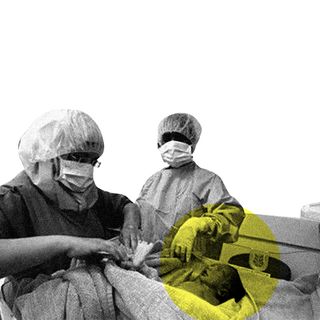Health care workers deal with anxiety, depression, and symptoms of post-traumatic stress disorder (PTSD) during the most intense stage of and up to a year after an epidemic, say researchers. The analysis of mental health in previous global health crises will aid health care professionals working through the current Covid19 pandemic.
Published in the European Journal of Psychotraumatology, a meta-analysis of 19 studies reveals that almost a quarter of health care workers experienced post-traumatic stress during the most intense stages of previous epidemics. One year post-outbreak, almost 12% experienced lingering PTSD symptoms. As for anxiety and depression, almost a third felt symptoms during the height of earlier epidemics, and almost a quarter felt lingering symptoms a year later. The health care staff mentioned above worked through past epidemics like SARS and Ebola, MERS outbreaks, as well as the ongoing Covid19 pandemic.
“Nurses, doctors, allied health professionals and all support staff based in hospitals where patients with Covid19 are treated are facing considerable pressure, over a sustained period,” Richard Meiser-Stedman, study co-author and a professor at the University of East Anglia’s Norwich Medical School, says in a statement. He adds, “In addition to the challenge of treating a large volume of severely unwell patients, front line staff also have to contend with threats to their own physical health through infection, particularly as they have had to face shortages of essential personal protective equipment.”
Related on The Swaddle:
How Doctors Are the Unwitting, Frustrated Soldiers in the War Against Covid19
Researchers say that though mental health difficulties like post-traumatic stress are common among epidemic and pandemic health care workers, not enough research looks into the long-term impact of working in epidemic and pandemic environments. Remarking on the prevalence and impact of post-traumatic stress, co-author Sophie Allan says, “There is some evidence that some mental health symptoms such as post-traumatic stress symptoms get better naturally over time, but we cannot be sure about this.”
As health care workers cope with dwindling budgets, lack of adequate protective gear, or PPE, and the looming stress of a Covid19 infection, creating mental health care policies for health workers is imperative. Meiser-Stedman says, “We hope our work will help inform hospital managers of the level of resources required to support staff through these difficult times.”




